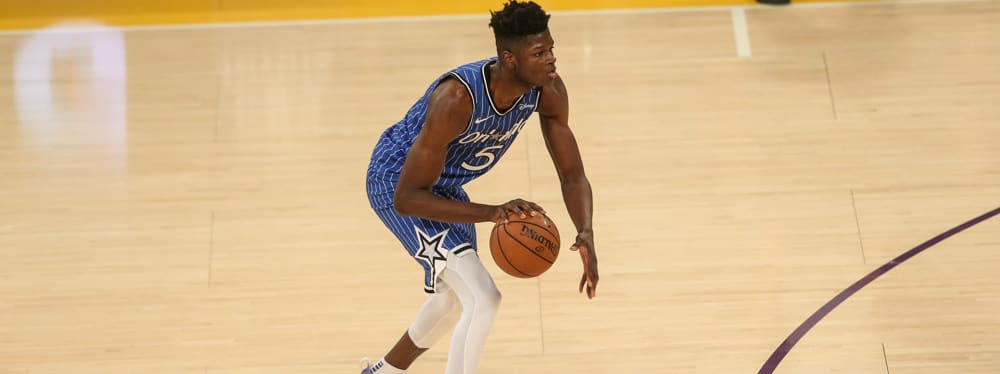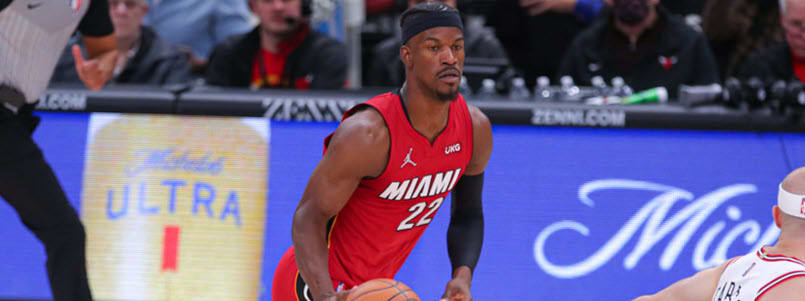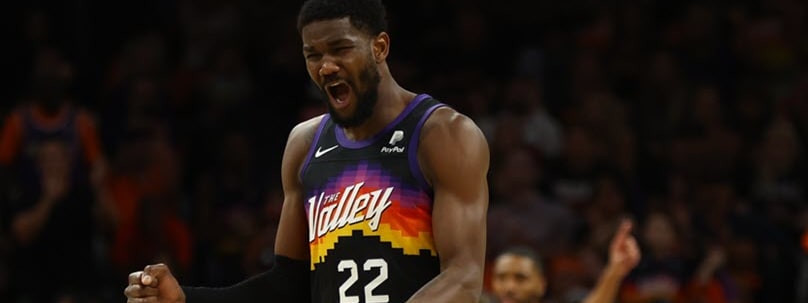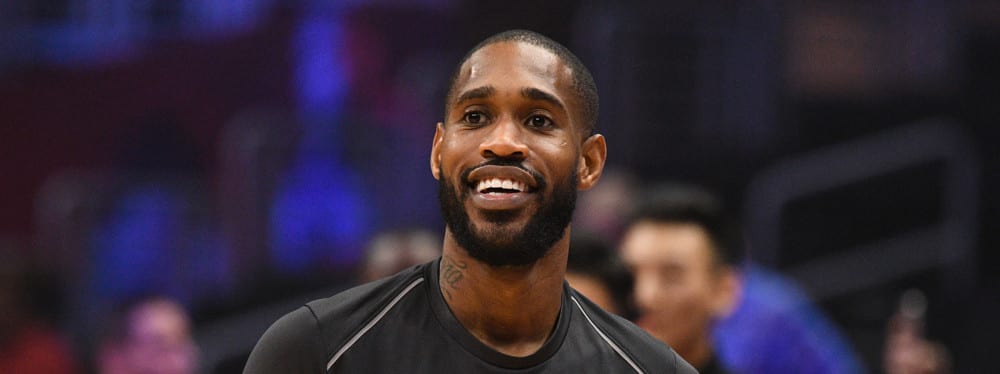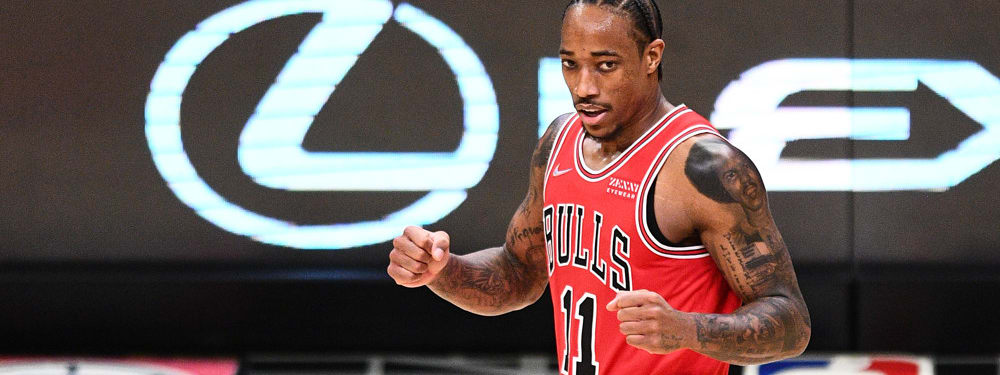Recent RotoWire Articles Featuring Lou Williams
See More
Last season was maybe the first meaningful step back in Williams' 16-year career. He saw his fewest minutes per game (21.3) since 2006-07, and his per-game fantasy rank (247) was also his lowest since that year. He spent the first half of the season with the Clippers before eventually being moved to the Hawks, but he had a similar role on each team. The signs of aging in Williams' game are there. He's taken fewer shots at the rim in each of the past three seasons and has replaced them mostly with mid-rangers. His three-point attempts have also taken a sharp decline since 2018-19. Unsurprisingly, he also posted the third lowest free-throw rate of his career (6.0 attempts per 100 possessions) last season. But all of that is to be expected from a soon-to-be 35-year-old guard who often relied on his quickness for buckets. During the offseason, Williams agreed to return to Atlanta on a one-year, $5 million deal. He should still be able to find roughly 20 minutes per game this season, but it would be surprising if he finished with top-100 value.
Outside of a brief, hot-wings-related suspension during the bubble, Williams' 15th NBA season was largely a positive one. Filling his typical sixth-man role (he started just eight times in 65 games), he played 28.7 minutes per game -- the fourth-highest total of his career. His numbers dipped slightly from the previous season, but he remained quite an effective weapon off the bench. His points per game tally fell from 20.0 to 18.2 (still the third-best mark of his career), but that appears to be mostly due to a drop in his usage rate from 32.4 percent to 28.4 percent. That's an understandable shift given the talent the Clippers brought in over the offseason. His effectiveness in his possessions actually increased by a tiny margin, as his effective field goal percentage rose from 47.1 percent to 47.7 percent. His three-point percentage dipped from 36.1 percent to 35.2 percent, though that came on 4.8 attempts per game, up from 3.9 the previous season. He also recorded a career-best 5.6 assists per game. Age will eventually come calling for the 33-year-old, but he's shown no signs of slowing down in recent years and should remain a capable contributor in the upcoming season.
Williams is coming off the two most productive seasons of his NBA career with the Clippers, and he most recently averaged 20.0 points and a career-high 5.4 assists across 26.6 minutes per game on his way to winning the league's Sixth Man of the Year award. On top of all that, he shot at least 36 percent from behind the arc for the third straight year. Now, after two years of being the top scoring option in Los Angeles, things are about to change dramatically for Williams with the arrival of superstars Kawhi Leonard and Paul George to the west coast in what was a franchise-altering offseason for the Clippers. While Williams' minutes load will probably remain relatively unchanged with the team's backcourt personnel staying the same as last season, the scoring burden on the 32-year-old's shoulders will be drastically lighter with Leonard and George serving as two of the league's most elite offensive players. Williams, as he always has been wherever he's playing, will undoubtedly be the leader of the team's second unit, but his value will likely resemble that of the last two seasons only when, and if, he is ever on the floor without either Leonard or George.
Despite coming off the bench for much of the 2017-18 season, Williams was essentially a starter considering his 32.8 minutes per game. He actually averaged a career-high 22.6 points per game, which matched Blake Griffin's scoring output in the 33 games he spent with the Clippers before being dealt to the Pistons at the trade deadline. Along with his impressive point totals, Williams was also a threat from deep whenever he touched the ball, hitting 2.4 three-pointers at a 35.9 percent clip. He also chipped in with some valuable secondary statistics, adding 5.3 assists, 2.5 rebounds and 1.1 steals, which made him a very intriguing Fantasy option across a plethora of different formats. It also earned him Sixth Man of the Year honors over other deserving candidates like Eric Gordon and Fred VanVleet. With Griffin out of the picture for the entire season and DeAndre Jordan leaving during free agency, Williams will be the clear cut No. 1 option on offense whenever he touches the floor, with the likes of Tobias Harris and Danilo Gallinari coming in as a close second and third. Whether he comes off the bench or moves into a starting position, it likely won't matter much, as Williams is still going to get as many minutes as he can handle. Look for him to come off the board in the top 50 picks of most drafts, which should result in a selection in the early middle rounds of standard leagues.
Williams spent last season on two different teams, having been dealt from the Lakers to the Rockets at the trade deadline. The runner-up for the Sixth Man of the Year award, Williams averaged a career-high 17.5 points per game on 42.9 percent from the field and 36.5 percent from deep across 24.6 minutes per game. He’ll now be joining the new-look Clippers, who have a relatively weak backcourt after trading Chris Paul to the Rockets. That said, it remains to be seen if he’ll be the starting shooting guard from day one. Coach Doc Rivers could opt to go a different direction and start Austin Rivers, Patrick Beverley or Milos Teodosic in that slot, bringing Williams off the bench as a sparkplug -- a role with which he's very familar. Regardless, it seems plausible that Williams will eclipse the workload he saw last season. As a result, Williams' overall value should remain fairly stable.
Since entering the league in 2005, Williams has built a reputation as a high-usage bench player in the mold of Jamal Crawford. After claiming the 2014-15 Sixth Man of the Year Award with the Raptors, Williams joined the cellar-dwelling Lakers on a three-year deal last summer. Williams didn't let his new team's rebuilding effort get in the way of his production, averaging 15.3 points, 2.5 rebounds, 2.5 assists and 1.6 three-pointers across 28.5 minutes per game, while picking up starts in 35 of his 67 games along the way. More than ever before in his career, Williams showed a greater willingness to attack the rim, aiding him to a career-high 6.3 free-throw attempts per game, which he hit at an 83 percent clip. Expect Williams to continue dominating possessions whenever he's on the floor, but he could be at risk of losing more court time in 2016-17. With D'Angelo Russell stepping into a full-time starting role and the Lakers adding No. 2 overall pick Brandon Ingram and veteran Jose Calderon to the backcourt mix, it's difficult to envision Williams regularly pushing for upwards of 30 minutes on a given night.
The NBA's reigning Sixth Man Of The Year finds himself in not just a different situation but a different country, leaving the Raptors for the warmer weather of Los Angeles. Although he heads to a worse team overall, it can be argued that his playing time and role is more up for debate than what it was in Toronto. Kobe Bryant, Nick Young, Jordan Clarkson, and number two overall draft pick, D'Angelo Russell will be pressing their claims for minutes in the backcourt, so Williams may find it difficult to improve on his 2014-15 output. In saying that, Williams was able to accumulate nice stats in limited minutes in Toronto, averaging just 25 minutes in the 80 games he played. In those games, Williams averaged 15.5 points, 1.9 rebounds, 2.1 assists, 1.1 steals, 0.1 blocks, and 1.9 three-pointers, shooting 40 percent from the field and 86 percent from the charity stripe. Williams' fantasy value clearly comes from his role as a scorer and three-point shooter, as well as being a knock down free-throw shooter, and he should be able to continue excelling in those areas in his new zip code. Now two seasons removed from a torn ACL, Williams has no immediate health concerns heading into his 11th NBA season.
Williams returned from a torn ACL to play 60 games for the Hawks last season, but he didn't look like the same scoring threat off the bench that he'd been prior to the injury. The combo guard finished his ninth NBA season averaging 10.4 points, 3.5 assists, 2.1 rebounds, 1.3 three-pointers, and 0.8 steals in 24 minutes per game, with shooting percentages of 40 percent from the floor, 85 percent from the free-throw line, and 34 percent from beyond the arc. Traded to the Raptors in a cap-clearing deal for John Salmons, Williams will primarily back up DeMar DeRozan at the two and add more long-distance shooting to an already strong Toronto second unit. Minutes could be hard to come by in his new role, as DeRozan logs heavy court time, and the duo of Kyle Lowry and Greivis Vasquez will see most of the action at point guard, but given that DeRozan will have a shortened offseason due to his participation in the World Cup, and Lowry has had trouble staying healthy in the past, there will likely be opportunities during the season for Williams to get some run.
Williams played starter minutes as the Hawks' sixth man in 40 games before missing half the season with a knee injury. He is a dynamic scorer when on the court, but this season's largest question mark at present. If he misses another 40 games this season, it could open the door for younger players to embrace bigger roles earlier than expected. Midway through the preseason, Williams is on pace to return to the lineup before the 2014 All-Star break.
Despite coming off the bench last season, Williams led the 76ers in scoring at 14.9 points per game, as the team relied more on an ensemble cast than one true star. He signed a multi-year deal with his hometown Atlanta Hawks during the offseason and should continue to be used in a bench role with Jeff Teague and Devin Harris on the roster. That doesn’t necessarily mean a diminished role for Williams, who still managed to see 26.3 minutes per game last season backing up Jrue Holiday. As a starter or a sixth man, Williams should get extensive use by the Hawks for his abilities as a pure scorer, with Teague and Harris being facilitator types. Williams isn’t expected to help in many categories beyond scoring and three-point shooting, but he does those things very well and should see ample opportunity to showcase those strengths with the Hawks. Be aware that his scoring does come with a shooting percentage that has typically hovered in the low 40-percent range.
A solid back-up point guard entering his seventh season, Williams played well last year, averaging 13.7 points and 3.4 assists per game. He's not a great shooter, but he can score if gets opportunities. Look for Williams to be in the same role as last season, possibly playing a little less due to the continued growth of Jrue Holiday.
Evan Turner and incumbent Jrue Holiday are the likely starting backcourt barring an injury. Williams should end up serving as the primary backup point guard while also seeing some action at the two.
Andre Miller�s departure to points West means Williams inherits the Sixers� starting point guard spot� at least until rookie Jrue Holiday is ready to take on a larger role. Williams is more of a hybrid scoring guard than a natural point at this stage of his career � and though he�s entering his fifth NBA season, he�ll be just 23 when the season starts � younger than some of the rookies that were drafted in June � so there�s still time for him to develop. And develop he must, if he hopes to hang on to a starting job. Last season�s assist-to-turnover numbers (3.0 apg, 1.9 turnovers) won�t cut it. But as a scoring lead guard, Williams has real potential to blow up this season. Other scoring guards have done very well playing in Eddie Jordan�s offense� like a certain Mr. Arenas. If Williams develops into half the scorer Agent Zero was before his injury troubles, Philly management � and fantasy owners � will be thrilled.
The 76ers re-signed Williams to a five-year deal, a clear show of confidence in the quick, slashing point-guard’s scoring and ball-handling ability. It’s unclear, however, whether they view him as the point guard of the future, or as a hybrid guard who can light it up when the team needs a lift. Williams averaged 11.5 points and 9.4 shots in 23.3 minutes per game, and the point-guard instincts aren’t there yet – he turns the ball over (3.2/1.6 A/TO) too often. Andre Miller is entrenched at the one for this season, so expect Williams to provide instant offense at the two or off the bench.
Williams averaged just 11.1 minutes per game last season, but the team expects him to double his production this coming season in terms of scoring and playing time. If he plays well and shows marked improvement, he could steal time from Andre Miller and possibly make him expendable. Williams, who had a strong showing in the Las Vegas summer league, is worth a late look in deeper leagues.
Williams will look to use his year of NBA experience and added maturity to gain more minutes on the court and be a contributor for the Sixers during 2006-07. He showcased some terrific offensive skills during the Rocky Mountain Revue and shows the promise to be a major contributor in the NBA in the future. Williams can play both guard positions, but will primarily at the point position for the Sixers and will split time with Ollie and Green in backing up Iverson.
Green's season-ending injury leaves an opening for Williams to step in and contribute immediately. While he's fresh out of high school and needs to improve his shot, he could see regular minutes if he impresses in training camp.
